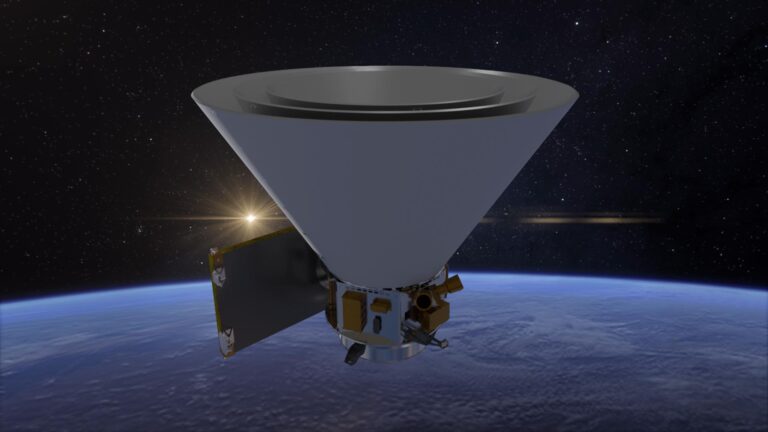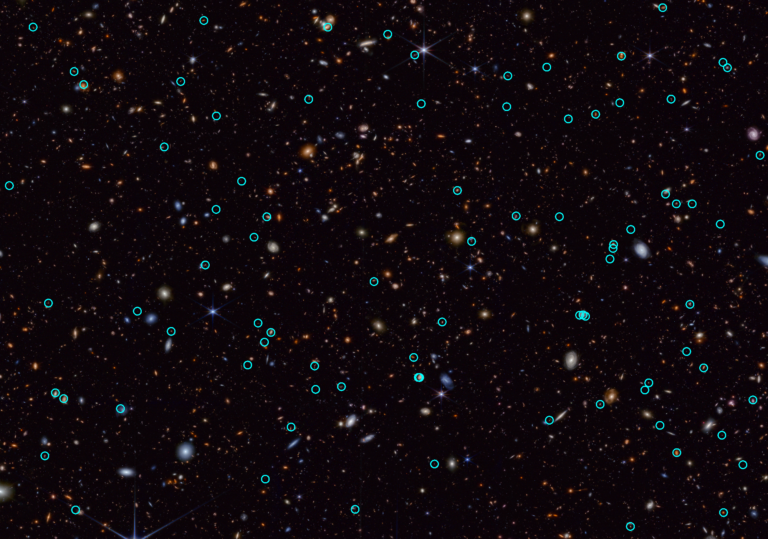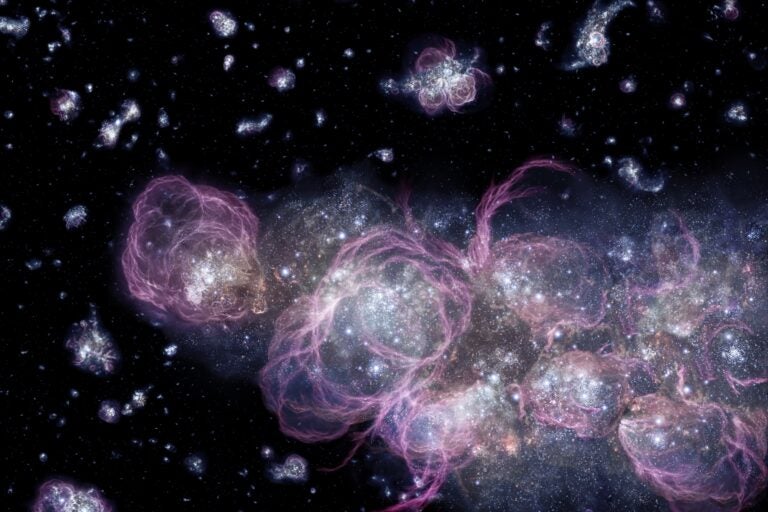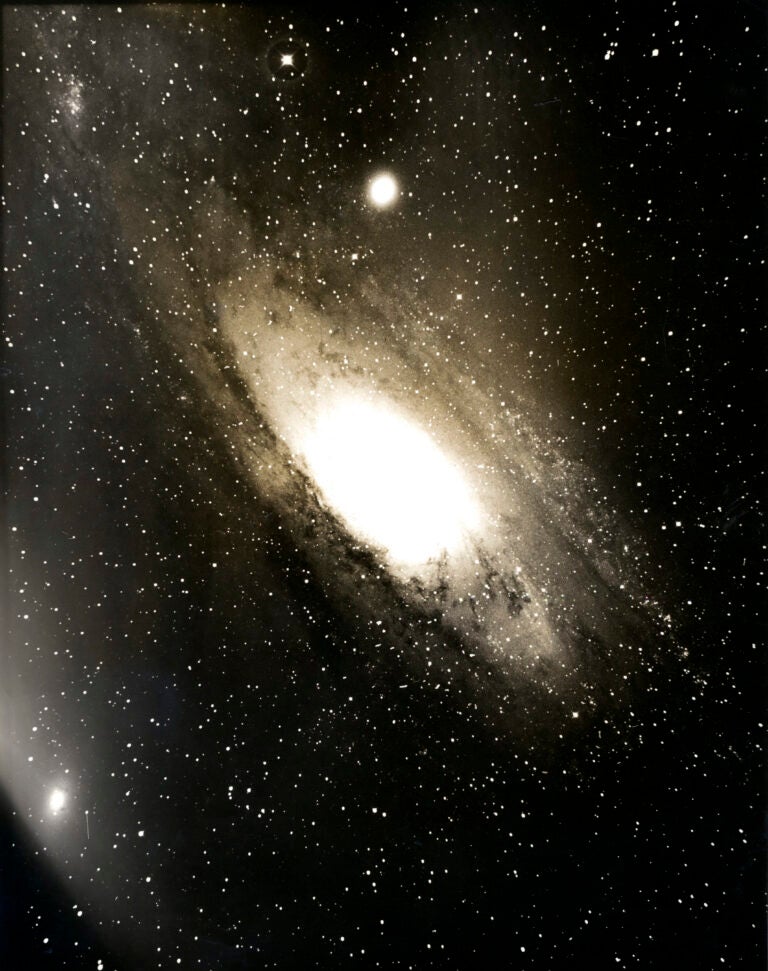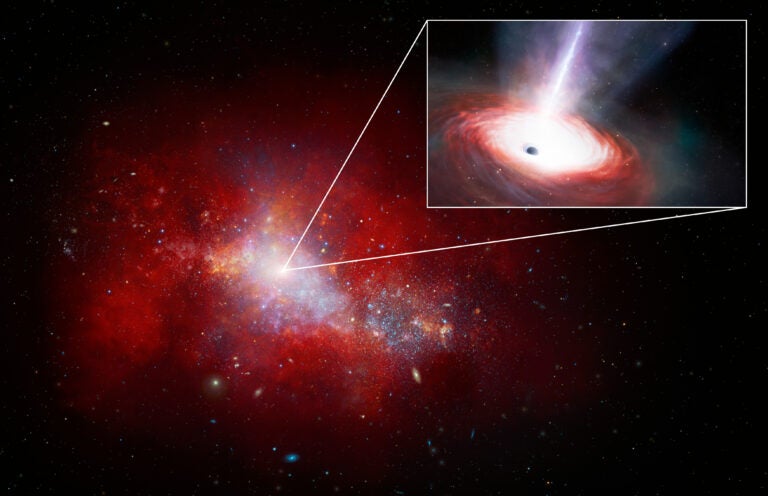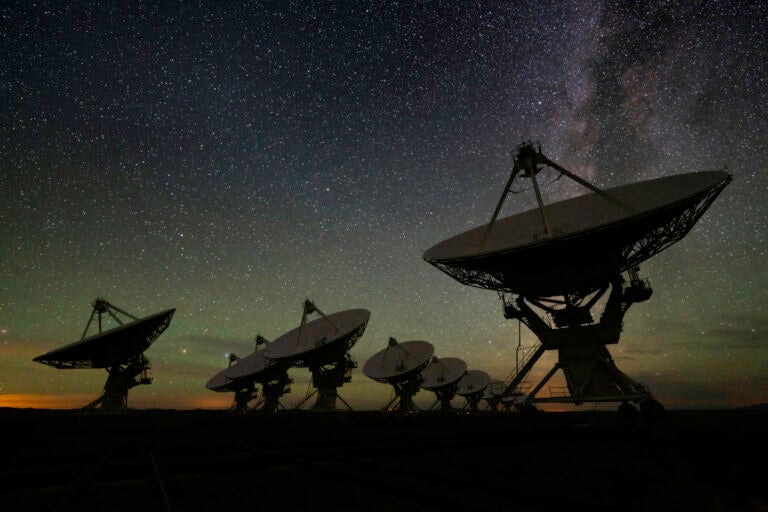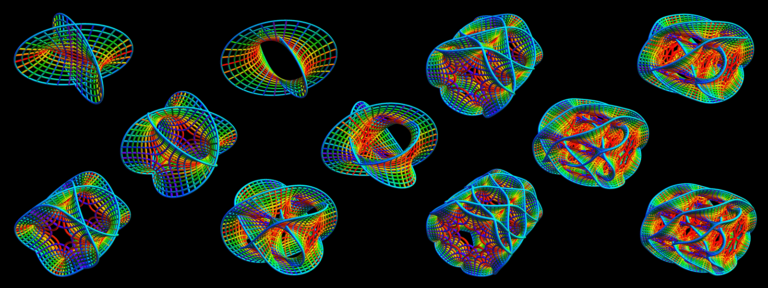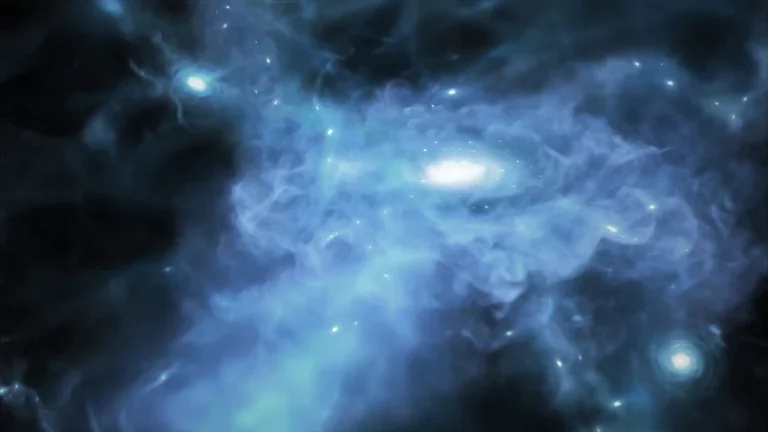
Does E = mc2 hold true for dark matter and dark energy?
Gary George
Cincinnati, Ohio
Yes — in short, this is true for all forms of matter and energy, including dark matter and dark energy. But there are some important details to consider.
E = mc2 is a special case of the full equation E2 = (mc2)2 + (pc)2. The term pc represents the kinetic energy of an object, which means the familiar E = mc2 is only exactly true for objects at rest or in the same rest frame, where the momentum p is zero. That’s why the mass (m) in the equation is also referred to as rest mass.
Usually, the part of the equation containing the rest mass is much larger than the kinetic energy. Then E = mc2 is a good approximation for everything that doesn’t move at a significant fraction of the speed of light. And speaking of light, photons (the particles of light and electromagnetism) are the other extreme of the full equation. They have no rest mass (so that term becomes zero) but they still have momentum and thus energy.
The fact that kinetic energy is also part of the total energy of particles is exploited by scientists at particle accelerators, like the Large Hadron Collider at CERN. By accelerating particles to nearly light-speed, new particles can be created in head-on collisions that have even more rest mass than the original ones. Researchers use this method to search for dark matter particles by trying to create dark matter from the mass and energy of other particles.
The equation even holds true for dark energy. The simplest way to understand dark energy is as the energy held by the vacuum of space itself. So, even in the most perfect vacuum without a single particle of matter, there is some tiny amount of energy. For example, the dark energy content for a sphere enclosed by the Moon’s orbit would only equate to a mass of about 3 pounds (1.4 kilograms), which is easily overshadowed by pretty much everything else within that volume. However, as the universe is mostly a lot of empty space, this tiny amount of energy held by the vacuum of space amounts to the majority of the total energy content in the universe. Due to the odd properties of dark energy, the gravitational pull generated by its mass equivalent is easily overcome by its negative pressure, which is the force driving the accelerated expansion of the universe.
Christoph Saulder
Cosmologist, Korea Astronomy and Space Science Institute, Daejeon, South Korea

